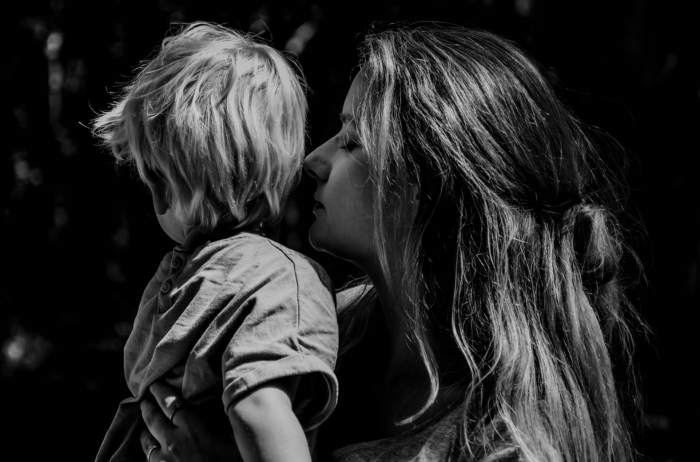Author’s note: I am not a professional, rather the grandmother of a child with ADHD. This is a fictional account written for parents who are considering having their child assessed and tested for ADHD.
~
As a mom of an ADHD child, I definitely have my work cut out for me, but let’s start at the beginning.
He’s the most beautiful little child in the world! A bit boisterous. Somewhat wiggly. Adventurous, creative, talkative, spontaneous. What a perfect little boy!
And then things gradually begin to change. As he got a bit older, wiggles became fidgets. Moving became almost constant, out-of-the-box thinking ran wild, spontaneity morphed into dangerous choices, and the talking was almost non-stop.
At some point, I began to question my parenting.
What am I doing wrong? Am I too permissive? Too strict? Is there too much yelling?
Is punishing working? Is criticism helping?
My home was rarely calm. Something just wasn’t right.
My observations of my wonderful little boy began to concern me. I started to worry but I had no idea what to do. After all, what is normal?
Our home seemed to have moved from confusing to chaotic.
I decided that my first action should be to talk to my son’s pediatrician. During our visit, he was gently reassuring and recommended that I keep my eye on what happens when my son starts preschool.
Three mornings a week in a highly recommended preschool sounded like a dream come true. And it was. My darling little preschooler seemed happy to enter the class and happy to come home. What more could I ask for? Free mornings to get organized, breathe a bit deeper.
I assumed he was thriving. Then, I got a few clues that maybe he wasn’t.
My child’s classmates were meeting him at the door of the classroom every morning with a small blue plastic truck that he carried around with him for the rest of the day. Somehow his classmates tuned into his anxiety before I did—another mom fail.
Childhood anxiety is easy to miss but there are signs. Delayed and interrupted sleep. Stomach problems. Clinging.
As moms we desperately want everything to be fine, so we often move forward with fingers crossed.
When I mentioned my concerns to other moms they reassured me by telling me my child is “all boy,” “just being a boy,” or “full of life.” And I definitely wanted to be reassured.
I wondered if I was covering up for him.
Am I finishing his sentences for him? Playing with his playdates? Trying to make everything easier for him?
I kept watching.
Kindergarten changed everything.
I’m not sure when the things I was noticing and worrying about changed into genuine concerns about his behavior, but there is no doubt that his kindergarten experience was the catalyst.
It wasn’t far into the school year that I heard from his teacher that he had trouble sitting still. He was moving around the classroom at inappropriate times, talked a lot, interrupted, was unable to sit still at circle time, had difficulty paying attention, seemed unable to focus, and disrupted the class.
His teacher didn’t share all of these behavioral concerns at one time, but I started to hear one or more of her observations every few weeks.
I was having trouble defaulting back to “he’s all boy.”
He didn’t seem unhappy in kindergarten. There were no requests to stay home or complaints about school but I was aware that he was not reading or really even trying to read yet.
By the end of the school year, I had convinced my husband (no easy task) that it was in our child’s best interest to have our son assessed for ADHD. This was a huge decision for all sorts of reasons. It meant admitting that he might have a neurological difference, that we might learn something we really didn’t want to know, and that an ADHD diagnosis would change all our lives forever.
Having a child assessed for ADHD is a huge, difficult decision and one that every parent has to carefully consider.
For me, the turning point was having a teacher’s observations of my child’s behaviors in the classroom confirm that my worries should in fact be concerns.
I could no longer hide behind “boys will be boys” or “he’s bored in school.”
I had to do what was best for him and for our family—and that meant finding out the truth.
Once our decision was made to have our son tested and assessed for ADHD, we moved forward carefully. We spoke with his pediatrician and then researched all their referrals to testing professionals. It was essential that we find someone we could not only trust but a professional whose philosophy agreed with ours. We wanted someone who considered the entire picture, all of our options: testing, treatment, therapy, peer group support, parent support, education, information, and medication management if appropriate,
We began the process worried, confused, sad, frustrated, and overwhelmed but emerged informed, encouraged, and supported. We found an advocate for our child and our family, one that considered our entire family when making recommendations.
We were presented with a range of treatment options that we reviewed carefully, and we made our choices based on our treating professionals’ recommendations together with our own research and our contact with ADHD support groups.
Although a positive ADHD diagnosis may seem overwhelming at first, we kept in mind that the diagnosis defined how his brain works, not who he is or who he will be.
The information we received allowed us to encourage, support, and educate our child to understand that although his brain was wired differently than some of his peers, it was wired in a way that worked perfectly. The key was to ensure that our child was taught in the way that he learned—not an easy task but one that could be accomplished if we focused our attention on what our child needed to succeed. And that continues to be our goal moving forward.
There is no end to parenting a child with ADHD, but we can tackle the responsibility with one goal in mind—advocate for and love our child for exactly who he is.
~












Read 2 comments and reply